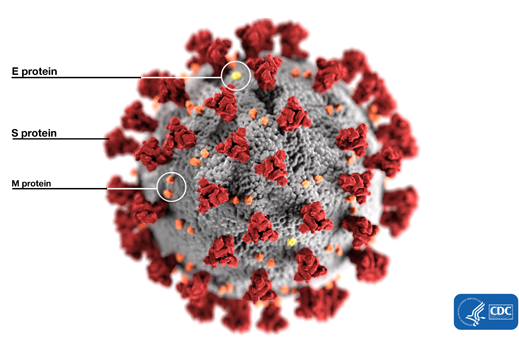As the SARS-CoV-2 virus (also known as COVID-19) continues to rage across the world killing millions, more time, effort, and money is being put into researching the best vaccines to help bring the world back to a state of normalcy. One such vaccine is being developed at the University of Washington using replicating RNA is called LION (Lipid InOrganic Nanoparticle). In its animal trials in July, the vaccine already found some success inducing “coronavirus-neutralizing antibodies” in mice young and old which has given researchers a lot of hope for the future of the vaccine.
One might wonder, why do we need a vaccine at all? Vaccines are used to expose your body to small doses of a virus or in this case by mRNA, which teaches your body to produce the antibodies needed to fight the virus and makes memory cells. The next time you are exposed to the virus, your body will be able to produce the necessary antibodies to a much larger degree, much quicker, for longer so you will be protected from becoming sick.
One of the lead researchers on LION, Professor Deborah Fuller of the University of Washington School of Medicine qualified the goals of a successful COVID-19 vaccine saying it, “will ideally induce protective immunity after only a single immunization, avoid immune responses that could exacerbate virus-induced pathology, be amenable to rapid and cost-effective scale-up and manufacturing, and be capable of inducing immunity in all populations including the elderly who typically respond poorly to vaccines.” This is quite a lot to accomplish but LION lends itself very well to these goals, conquering most of the problems a typical DNA vaccine would have. DNA vaccines work by coding for the antigens which are then exposed to the immune system to create memory cells so the body can treat the virus later. The downsides of a DNA vaccine is sometimes those antigens fail to create an immune response or can even cause the cell to become cancerous when the DNA joins the host cells DNA, disrupting it. There is far less risk with RNA vaccines which occupy the cytoplasm and only interact with ribosomes.
Shown above us a basic drawing of what SARS-CoV-2 virus looks like.
LION is a replicating RNA vaccine, but how does replicating RNA work? RNA codes for spike proteins and ribosomes in the body make the necessary proteins. Replicating RNA allows for more spike proteins and ribosomes to be coded at a greater rate, which produces a greater number of proteins continuously while triggering “a virus-sensing stress response that encourages other immune activation.” For the vaccine the RNA replicates proteins that tell the body to reject the SARS-CoV-2 and attack them “with antibodies and T cells” which stop the protein spikes on the virus from interfering with the cell. The development of B cells, which remember how to make the antibodies to fight the virus when infected again, as well as T cells is especially critical for the vaccine as they can develop immunity to the SARS-CoV-2 antigens. What makes the LION vaccine special is the nanoparticle it is named after which “enhances the vaccine’s ability to provoke the desired immune reaction, and also its stability.” This makes it more valuable than other vaccines of the same kind as it can achieve effective results with a longer shelf life. It can also be mixed simply using a two vial method as the mRNA component is made separately from the main vaccine formulation. For all these reasons, the scientists are optimistic as the vaccine goes into the next stages of testing that this vaccine could help provide a long term solution to the COVID-19 pandemic.
As COVID-19 vaccines start becoming available to essential workers in the coming weeks and my father prepares to take one, it can be quite unnerving to think about all the potential negative side effects of the vaccine. These vaccines have been developed without the typical ten years of testing, so knowing more about the research behind the vaccines serves as a comfort me and many others. Our future is in these vaccines and research so knowing which we should invest our time and money in is always a good idea.



Leave a Reply